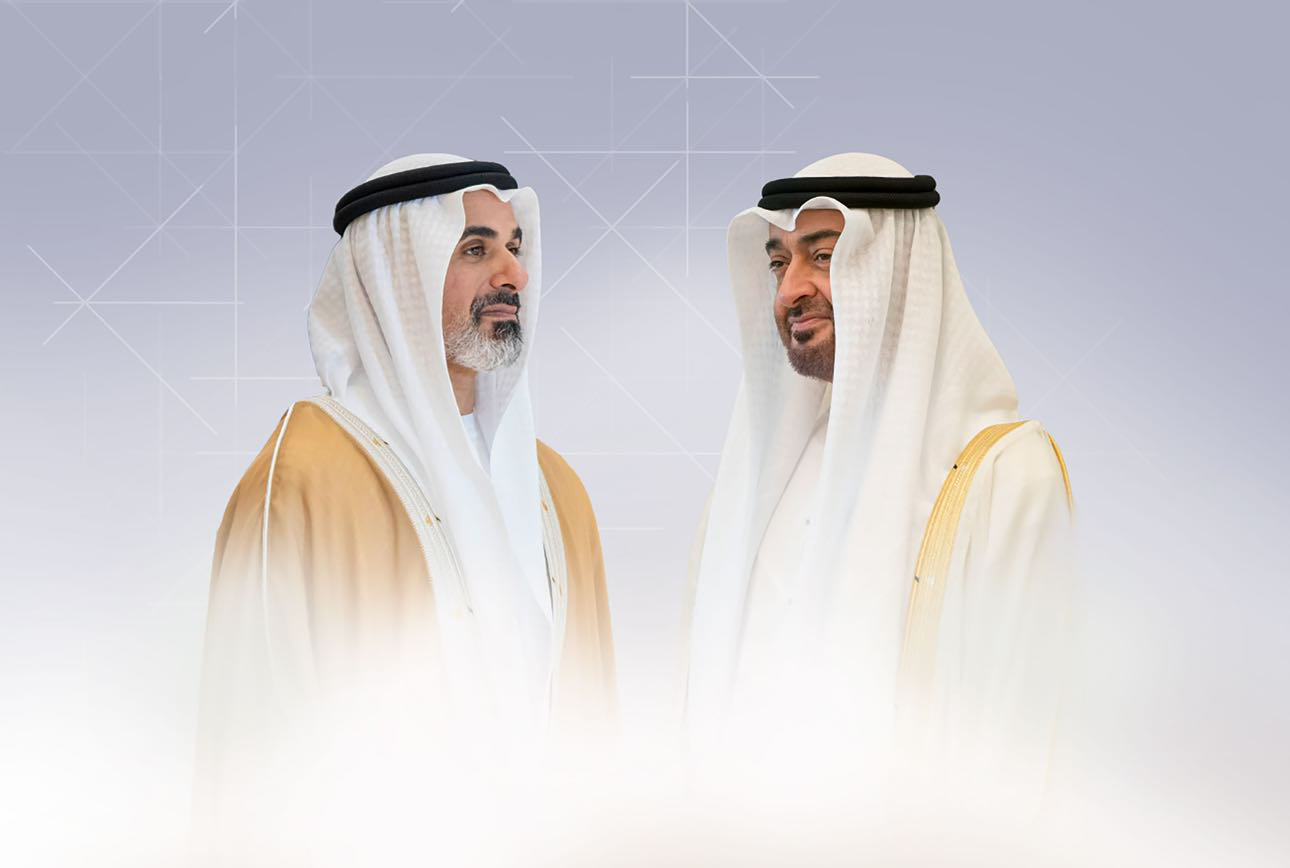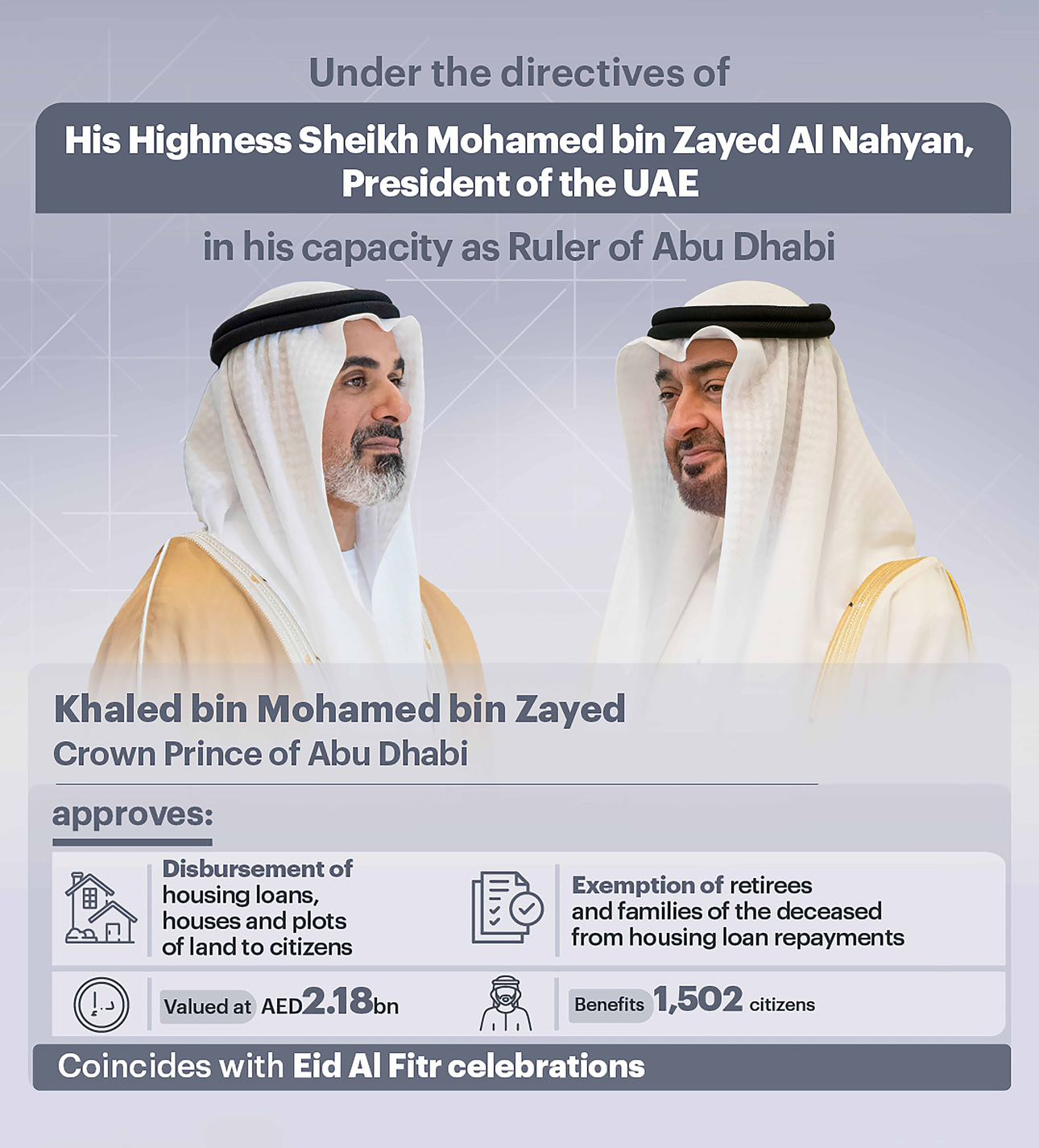
Crown Prince of Abu Dhabi Approves First 2024 Housing Package: What Does it Mean for Citizens?
The Crown Prince of Abu Dhabi, Sheikh Khaled bin Mohamed bin Zayed Al Nahyan, has recently marked a significant milestone by approving the first housing and benefits package for 2024. This initiative, under the auspices of the Abu Dhabi Housing Authority, signifies a robust commitment to ensuring accessible housing for all citizens. With a total value surpassing AED 149 billion in housing benefits dispensed since its inception in 2012, the efforts of the Abu Dhabi Crown Prince further cement his vision for the emirate’s future.
This landmark approval not only underscores the leadership’s dedication to enhancing the quality of life for its residents but also aligns with the broader goals of the UAE President, Sheikh Mohamed bin Zayed Al Nahyan. The strategic move promises to bolster the housing landscape in Abu Dhabi, setting an optimistic precedent for what citizens can anticipate in the coming years. As we delve into the implications of this package, the focus will be on dissecting its impact on Abu Dhabi’s citizens, its historical significance, and the overarching vision it embodies.

Overview of the Housing Benefits Package
Under the directive of UAE President Sheikh Mohamed bin Zayed Al Nahyan, and overseen by Sheikh Khaled bin Mohamed bin Zayed Al Nahyan, Crown Prince of Abu Dhabi, the Abu Dhabi government has rolled out a comprehensive housing benefits package valued at Dh2.18 billion. This initiative is designed to support the citizens of Abu Dhabi in numerous ways:
Housing Loans and Grants:
The package includes housing loans, ready-built houses, and residential land grants.
A total of 1,407 citizens across Abu Dhabi will benefit from these provisions.
Special Exemptions:
Senior citizens, retirees with low incomes, and the families of deceased citizens have been granted exemptions from housing loan payments.
This directly benefits ninety-five citizens, providing them with much-needed financial relief.
Broader Impact:
The distribution of these benefits is aimed at fostering familial and social cohesion within the emirate.
It also aligns with the comprehensive development agenda of Abu Dhabi, indicating a strategic move towards enhancing the living standards of its residents.
Impact on Abu Dhabi Citizens
The impact of the first 2024 housing benefits package on Abu Dhabi citizens is multifaceted, aiming to enhance the quality of life and foster economic stability within the community. Here’s a breakdown of its direct effects:
Familial and Social Cohesion:
Strengthening community ties by providing stable homes, fostering a sense of belonging and security among residents.
The initiative supports 1,502 UAE citizens, directly addressing housing needs and contributing to the overall well-being of families and communities.
Economic Empowerment:
Exemptions worth over AED98 million for low-income retirees and families of deceased citizens alleviate financial burdens, directly benefiting ninety-five citizens.
Equitable plot allocation and distribution policies enable citizens to generate income through property rentals, promoting economic diversification and sustainability.
Regulatory Compliance and Community Engagement:
The ADHA’s campaign to inspect government-provided housing units ensures compliance with housing regulations, enhancing living conditions.
Community awareness initiatives encourage active participation in maintaining the integrity of housing units, ensuring they serve their intended purpose and contribute to the community’s overall health and safety.
Historical Context
The evolution of housing in Abu Dhabi and Dubai can be traced back to the 18th century, marking a journey from humble beginnings to the architectural marvels that define the skyline today. This transformation is deeply rooted in the region’s economic, cultural, and social history.
Early Settlements and Architectural Evolution:
18th Century: The inception of small towns along the Persian Gulf, with barastis (informal shantytowns) as the primary form of housing, constructed from natural materials like mud bricks, coral, dry stones, and wood.
19th Century: The pearl trade catalyses urbanization, attracting diverse populations and leading to anticipation of modern settlements by political and business elites.
1950s-1970s: Transition from barasti settlements to the first concrete houses in 1956, with American architects introducing modern art forms in the 1970s, ushering in an era of architectural postmodernism.
Cultural and Legal Frameworks Influencing Housing:
Sha‘bī House Initiative: A public housing strategy to accommodate the Bedouin population, featuring an incremental design approach that contrasts with the state’s vision of modernity.
Property Laws: Evolution of laws allowing foreign investment in designated areas, with UAE nationals able to own land anywhere, shaping the real estate landscape.
Pre- and Post-Oil Era Urban Planning:
Pre-Oil Settlement: Abu Dhabi Island’s 19th-century settlement organized around functional necessities, environmental understanding, and cultural codes.
Post-Oil Era (1962-2004): The commissioning of the first urban plan for Abu Dhabi City by British consultancy firms, marking a significant shift towards structured urban development.
This historical context underscores the intricate relationship between Abu Dhabi’s architectural evolution and its broader socio-economic and cultural transformations, setting the stage for the current housing initiatives.
Vision and Goals of the Leadership
In a strategic move to enhance the housing landscape for UAE nationals, the Abu Dhabi Housing Authority (ADHA) has introduced a new visual identity, signalling a significant leap towards creating a sustainable housing ecosystem. This initiative is underscored by several key elements:
New Visual Identity: The ADHA has adopted a redesigned logo, which is inspired by intersecting geometrical shapes. This modern design reflects the innovative and forward-thinking approach of the Abu Dhabi leadership in addressing housing needs.
Improving Lives: The core aim of the new visual identity is to improve the lives of UAE nationals living in Abu Dhabi. It symbolizes a commitment to enhancing the quality of living through accessible and adequate housing solutions.
Reflecting Leadership’s Dedication: The distribution of the 2024 housing benefits package through this refreshed identity underscores the leadership’s dedication to the wellbeing of Emirati families. It is a testament to their commitment to providing housing that not only meets the needs of the citizens but also contributes to the socio-economic stability of the emirate.
These elements collectively reflect the vision and goals of the UAE leadership in fostering a conducive environment for the citizens’ welfare, particularly in the realm of housing accessibility.
Eid Al Fitr Coincidence
The decision to align the distribution of this year’s first housing benefits package with the celebration of Eid Al Fitr is a deliberate and thoughtful gesture by the leadership of Abu Dhabi. This timing is not merely coincidental but is imbued with significant symbolism and reflects a deep commitment to the welfare of Emirati families. Here are the key aspects of this strategic timing:
Eid Al Fitr marks the end of Ramadan, a period of fasting, reflection, and community. By timing the housing package with Eid, the leadership underscores a message of renewal and support, aligning with the festival’s themes of charity and family well-being.
Impact on Emirati Families:
The distribution during Eid amplifies the positive impact on families, turning the occasion into a double celebration. It reinforces the leadership’s dedication to enhancing citizens’ lives, providing them with more than just financial aid but also a sense of security and belonging during a significant cultural and religious festival.
Reflection of Leadership’s Dedication:
This strategic timing is a clear indication of the leadership’s foresight in weaving together governance with cultural and religious sensibilities. It is a testament to their comprehensive approach to policymaking, where the well-being of Emirati families is central, especially during times of celebration and communal gathering.
The convergence of the housing benefits package with Eid Al Fitr festivities not only highlights the leadership’s commitment to its citizens’ welfare but also strengthens the communal and familial bonds within the UAE, making this initiative a noteworthy example of thoughtful governance.
Through the approval of the first 2024 housing benefits package by the Crown Prince of Abu Dhabi, Sheikh Khaled bin Mohamed bin Zayed Al Nahyan, a significant stride has been made toward enhancing the quality of life for Abu Dhabi’s citizens. This initiative not only highlights the leadership’s unwavering commitment to its people’s welfare but also sets a precedent for future developments in housing accessibility within the emirate. By addressing the pressing needs of the citizens through housing loans, grants, and special exemptions, the program is poised to bolster familial and social cohesion, reflecting the comprehensive development goals cherished by the UAE.
The distribution of this package, synchronized with the celebration of Eid Al Fitr, magnifies its impact, intertwining governance with cultural sensitivity to nurture a sense of security and belonging among Emirati families. This gesture from the leadership underscores a profound understanding of the citizens’ needs and an unobstructed vision for a future where every individual has access to adequate housing. As Abu Dhabi continues to evolve, the initiatives such as these will remain vital in shaping a resilient and thriving community, encouraging other regions to adopt similar measures for the betterment of their inhabitants.





